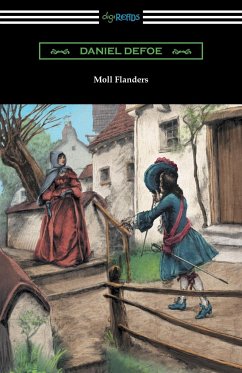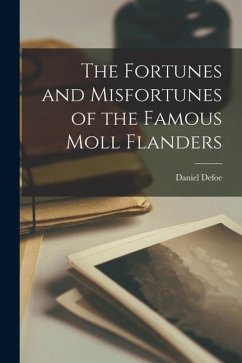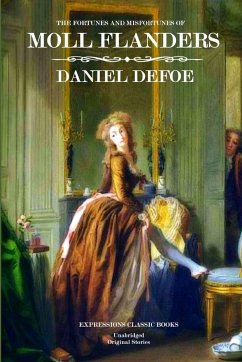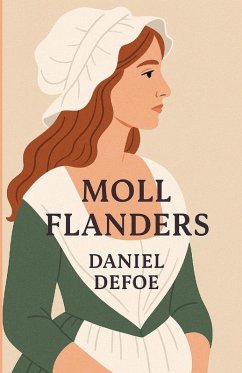
Moll Flanders
Versandkostenfrei!
Versandfertig in 1-2 Wochen
14,99 €
inkl. MwSt.

PAYBACK Punkte
7 °P sammeln!
First published in 1722, Daniel Defoe's "Moll Flanders" is the classic and tragic morality tale of its title character. Based in part on the true story of a female criminal that Defoe met in Newgate Prison, Moll Flanders is the daughter of a convict and is driven by a singular ambition, to raise her station in life, by any means necessary. In the process of trying to lift herself out of squalor and become a lady she is married several times, abandons her many children, and eventually resorts to thievery and prostitution in her constant quest for a better life. Bad luck and poor judgment plague...
First published in 1722, Daniel Defoe's "Moll Flanders" is the classic and tragic morality tale of its title character. Based in part on the true story of a female criminal that Defoe met in Newgate Prison, Moll Flanders is the daughter of a convict and is driven by a singular ambition, to raise her station in life, by any means necessary. In the process of trying to lift herself out of squalor and become a lady she is married several times, abandons her many children, and eventually resorts to thievery and prostitution in her constant quest for a better life. Bad luck and poor judgment plague Moll at every turn and at one point she discovers she has inadvertently married her own half-brother. Eventually convicted of theft, Moll is transported to the new world where she finally begins to turn her life around. Moll is able to redeem herself, repair many of her fractured relationships, and finds love and a new life of prosperity in the Colonies. One of Defoe's best and most loved works, "Moll Flanders," is both the story of a fascinating and complicated woman and ultimately a tale of remorse and redemption. This edition is printed on premium acid-free paper.













